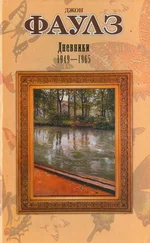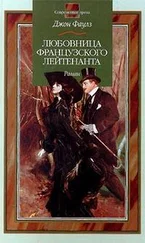Джон Фаулз - The Tree
Здесь есть возможность читать онлайн «Джон Фаулз - The Tree» весь текст электронной книги совершенно бесплатно (целиком полную версию без сокращений). В некоторых случаях можно слушать аудио, скачать через торрент в формате fb2 и присутствует краткое содержание. Жанр: Современная проза, на английском языке. Описание произведения, (предисловие) а так же отзывы посетителей доступны на портале библиотеки ЛибКат.
- Название:The Tree
- Автор:
- Жанр:
- Год:неизвестен
- ISBN:нет данных
- Рейтинг книги:5 / 5. Голосов: 1
-
Избранное:Добавить в избранное
- Отзывы:
-
Ваша оценка:
- 100
- 1
- 2
- 3
- 4
- 5
The Tree: краткое содержание, описание и аннотация
Предлагаем к чтению аннотацию, описание, краткое содержание или предисловие (зависит от того, что написал сам автор книги «The Tree»). Если вы не нашли необходимую информацию о книге — напишите в комментариях, мы постараемся отыскать её.
The Tree — читать онлайн бесплатно полную книгу (весь текст) целиком
Ниже представлен текст книги, разбитый по страницам. Система сохранения места последней прочитанной страницы, позволяет с удобством читать онлайн бесплатно книгу «The Tree», без необходимости каждый раз заново искать на чём Вы остановились. Поставьте закладку, и сможете в любой момент перейти на страницу, на которой закончили чтение.
Интервал:
Закладка:
We set off north-west across an endless fen and up towards a distant line of tors, grotesque outcrops of weather-worn granite. Though it is mid-June, the tired grass is still not fully emerged from its winter sleep; and the sky is also tired, a high grey canopy, with no wind to shift or break it. What flowers there are, yellow stars of tormentil, blue and dove-grey sprays of milkwort, the delicate lilac of the marsh violet in the bogs, are tiny and sparse. Somewhere in the dark and uninhabited uplands to the north a raven snores. I search the sky, but it is too far oif to be seen.
We cross a mile of this dour wasteland, then up a steep hillside, through a gap in an ancient sheep-wall, and still more slope to climb; and come finally to a rounded ridge that leads north to an elephantine tower, a vast turd of primary rock, Longford Tor. At our feet another bleak valley, then a succession, as far as the eye can see, of even bleaker tor-studded skylines and treeless moorland desert. My wife tells me I must have the wrong place, and nothing in the landscape denies her. I do, but not with total conviction. It is at least thirty years since I was last in this part of the Moor.
We walk down the convex slope before us, into the bleak valley, and I begin to think that it must indeed be the wrong place. But then suddenly, like a line of hitherto concealed infantry, huddled under the steepest downward fall of the slope near the bottom, what we have come for emerges from the low grass and ling: a thin, broken streak of tree-tops, a pale arboreal surf. For me this secret wood, perhaps the strangest in all Britain, does not really rise like a line of infantry. It rises like a ghost.
I can't now remember the exact circumstances of the only other time I saw it, except that it must have been late in 1946, when I was a lieutenant of marines in a camp on the edge of Dartmoor. This was not part of our training area, and I can't have been on duty. It was winter, there was ice in the air and a clinging mist, and I was alone. I think I had been walking somewhere else, trying to shoot snipe, and had merely made a last-minute detour to see the place, perhaps to orient myself.
At least it lived up to the reputation that I had once heard a moorland farmer give it; some tale of an escaped prisoner from Princetown a few miles away, found frozen to death there — or self-hanged, I forget. But it had no need of that kind of black embroidery. It was forlorn, skeletal, almost malevolent — distinctly eerie, even though I am not a superstitious person and solitude in nature has never frightened me one-tenth as much as solitude in cities and houses. It simply felt a bad place, not one to linger in, and I did not go into the trees; and I had never gone back to it, though often enough on Dartmoor, till this day. In truth I had forgotten about it, in all those intervening years, until I began writing this text and was recalling my father’s suspicion of the wild. One day then its memory mysteriously surged, as it surges itself from the moorland slope, out of nowhere. Its name is Wistman's Wood. I do not know who Wistman was — whether he was some ancient owner or whether the word derives from the old Devonshire dialect word wisht, which means melancholy and uncanny, wraithlike; and which lies behind one of Conan Doyle’s most famous tales. There would never have been a hound of the Baskervilles, were it not for the much older Wisht Hounds of Dartmoor legend.
Wistman’s Wood may be obscurely sited, but it is no longer, as it was in the 1940's, obscurely known. The rise of ecology has seen to that. In scientific terms it is an infinitely rare fragment of primeval forest, from some warmer phase of world climate, that has managed to cling on — though not without some remarkable adaptations — in this inhospitable place; and even more miraculously managed to survive the many centuries of human depredation of anything burnable on the Moor. Culturally it is comparable with a great Neolithic site: a sort of Avebury of the tree, an Ur-wood. Physically it is a half-mile chain of copses splashed, green drops in a tachist painting, along what on Dartmoor they call a clitter, a broken debris of granite boulders — though not at all on true tachist principle, by chance. These boulders provide the essential protection for seedlings against bitter winter winds and grazing sheep. But the real ecological miracle of Wistman's Wood is botanical. Its dominant species, an essentially lowland one, should not really be here at all, and is found at this altitude in only one other, and Irish, site in the British Isles. Here and there in the wood are a scatter of mountain ashes, a few hollies. But the reigning tree is the ancient king of all our trees: Quercus robur , the Common, or English, Oak.
We go down, to the uppermost brink. Names, science, history. . not even the most adamantly down-to-earth botanist thinks of species and ecologies when he or she first stands at Wistman’s Wood. It is too strange for that. The normal full-grown height of the common oak is thirty to forty metres. Here the very largest, and even though they are centuries old, rarely top five metres. They are just coming into leaf, long after their lowland kin, in every shade from yellow-green to bronze. Their dark branches grow to an extraordinary extent laterally; are endlessly angled, twisted, raked, interlocked, and reach quite as much downward as upwards. These trees are inconceivably different from the normal habit of their species, far more like specimens from a natural bonzai nursery. They seem, even though the day is windless, to be writhing, convulsed, each its own Laocoon, caught and frozen in some fanatically private struggle for existence.
The next thing one notices is even more extraordinary, in this Ice Age environment. It is a paradoxically tropical quality, for every lateral branch, fork, saddle of these aged dwarfs is densely clothed in other plants — not just the tough little polypodies of most deciduous woodlands, but large, elegantly pluming male ferns; whortleberry beds, grasses, huge cushions of moss and festoons of lichen. The clitter of granite boulders, bare on the windswept moors, here provides a tumbling and chaotic floor of moss-covered mounds and humps, which add both to the impression of frozen movement and to that of an astounding internal fertility, since they seem to stain the upward air with their vivid green. This floor like a tilted emerald sea, the contorted trunks, the interlacing branches with their luxuriant secondary aerial gardens. . there is only one true epithet to convey the first sight of Wistman’s Wood, even today. It is fairy-like. It corresponds uncannily with the kind of setting artists like Richard Dadd imagined for that world in Victorian times and have now indelibly given it: teeming, jewel-like, self-involved, rich in secrets just below the threshold of our adult human senses.
We enter. The place has an intense stillness, as if here the plant side of creation rules and even birds are banned; below, through the intricate green gladelets and branch-gardens, comes the rush of water in a moorland stream, one day to join the sea far to the south. This water-noise, like the snore of the raven again, the breeding-trill of a distant curlew, seems to come from another world, once one is inside the wood. There are birds, of course. . an invisible hedgesparrow, its song not lost here, as it usually is, among all the sounds of other common garden birds, nor lost in its own ubiquity in Britain; but piercing and peremptory, individual, irretrievable; even though, a minute later, we hear its prestissimo bulbul shrill burst out again. My wood, my wood, it never shall be yours.
Parts of all the older trees are dead and decayed, crumbling into humus, which is why, together with the high annual humidity, they carry their huge sleeves of ferns and other plants. Some are like loose brassards and can be lifted free and replaced. The only colour not green or bronze or russet, not grey trunk or rich brown of the decaying wood, are tiny rose-pink stem-beads, future apples where some gall-wasp has laid its eggs on a new shoot. But it is the silence, the waitingness of the place, that is so haunting; a quality all woods will have on occasion, but which is overwhelming here — a drama, but of a time-span humanity cannot conceive. A pastness, a presentness, a skill with tenses the writer in me knows he will never know, partly out of his own inadequacies, partly because there are tenses human language has yet to invent.
Читать дальшеИнтервал:
Закладка:
Похожие книги на «The Tree»
Представляем Вашему вниманию похожие книги на «The Tree» списком для выбора. Мы отобрали схожую по названию и смыслу литературу в надежде предоставить читателям больше вариантов отыскать новые, интересные, ещё непрочитанные произведения.
Обсуждение, отзывы о книге «The Tree» и просто собственные мнения читателей. Оставьте ваши комментарии, напишите, что Вы думаете о произведении, его смысле или главных героях. Укажите что конкретно понравилось, а что нет, и почему Вы так считаете.









![Джон Фаулз - Вылазка в действительность [антология]](/books/431648/dzhon-faulz-vylazka-v-dejstvitelnost-antologiya-thumb.webp)
![Джон Фаулз - Мантисса [litres]](/books/438194/dzhon-faulz-mantissa-litres-thumb.webp)